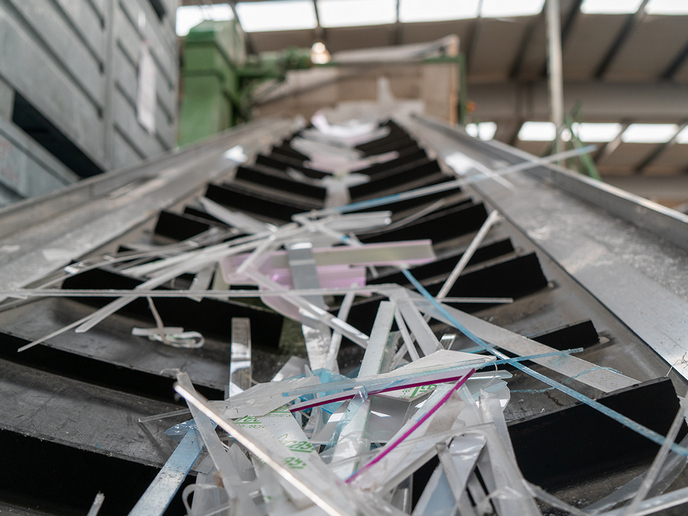Pioneering tech recycles end-of-life plastic waste
Polymethyl methacrylate (PMMA), commonly known as acrylic, is often used as a glass substitute in applications ranging from automotive lighting to domed roofs. Only about 30 000 tonnes of PMMA waste are collected for recycling purposes every year in Europe, or around 10 % of the annual production. The MMAtwo(opens in new window) project developed a technology that converts difficult-to-recycle PMMA waste that would otherwise be landfilled or incinerated into high-quality raw materials. This is done through a process called depolymerisation that converts a polymer into a monomer. Depolymerisation effectively recycles acrylic waste back to its original building blocks for making new PMMA materials. “One of the key challenges in recycling projects is to secure the supply of waste to have enough material to justify and build a plant,” explains project technical coordinator Jean-Luc Dubois, who chaired the executive board for MMAtwo. “We have been able to identify more than 30 000 tonnes per year of new PMMA scraps that are suitable for depolymerisation.” The depolymerisation technology is based on pyrolysis – heat treatment in the absence of oxygen – that is very selective in the case of PMMA. The mass yield from polymer to monomer can be above 90 % with the most common PMMA scraps. This technology, which was piloted during MMAtwo, is now being implemented by the global chemical company Trinseo in its plant in Rho, Italy. After purification, the regenerated monomer – methyl methacrylate (MMA) – is recovered and reused for multiple applications. The regenerated MMA was tested on a caravan window and a kitchen sink. The developed technologies have been protected by nine different patent application families.
Supporting the sustainable potential of PMMA
In addition, the project partners created an online tool called MMAtwo Footprinter(opens in new window) to calculate the technology’s environmental impact. A life-cycle analysis validated the environmental benefits of MMAtwo versus virgin MMA production and alternative technologies. Most recycling technologies can significantly reduce their carbon footprint versus the virgin MMA, but only the MMAtwo technology can also reach a virgin-like purity level. A book that presents a roadmap to increase the amount of recycled PMMA plastic waste was published in 2023, with a second edition soon to follow. In the same year, MMAtwo picked up the ‘Innovation Team Best Practices’ award for its technological solutions. If you are interested in having your project featured as a ‘Project of the Month’ in an upcoming issue, please send us an email to editorial@cordis.europa.eu and tell us why!



